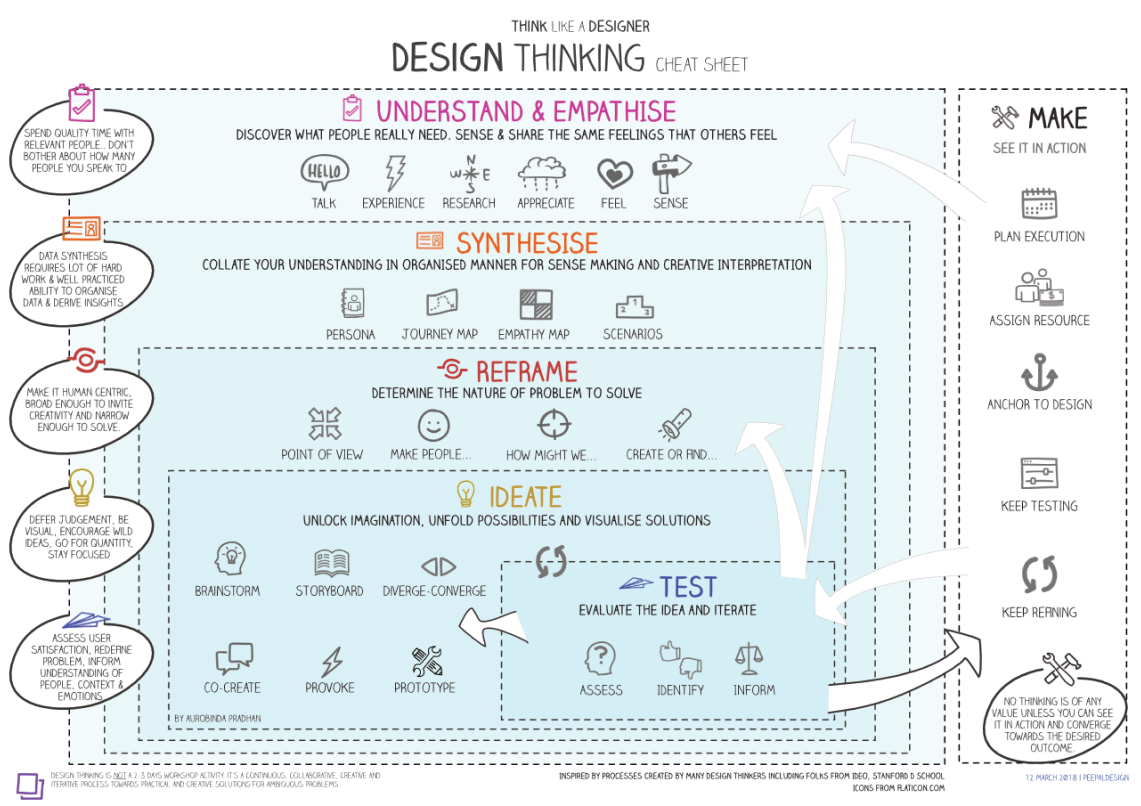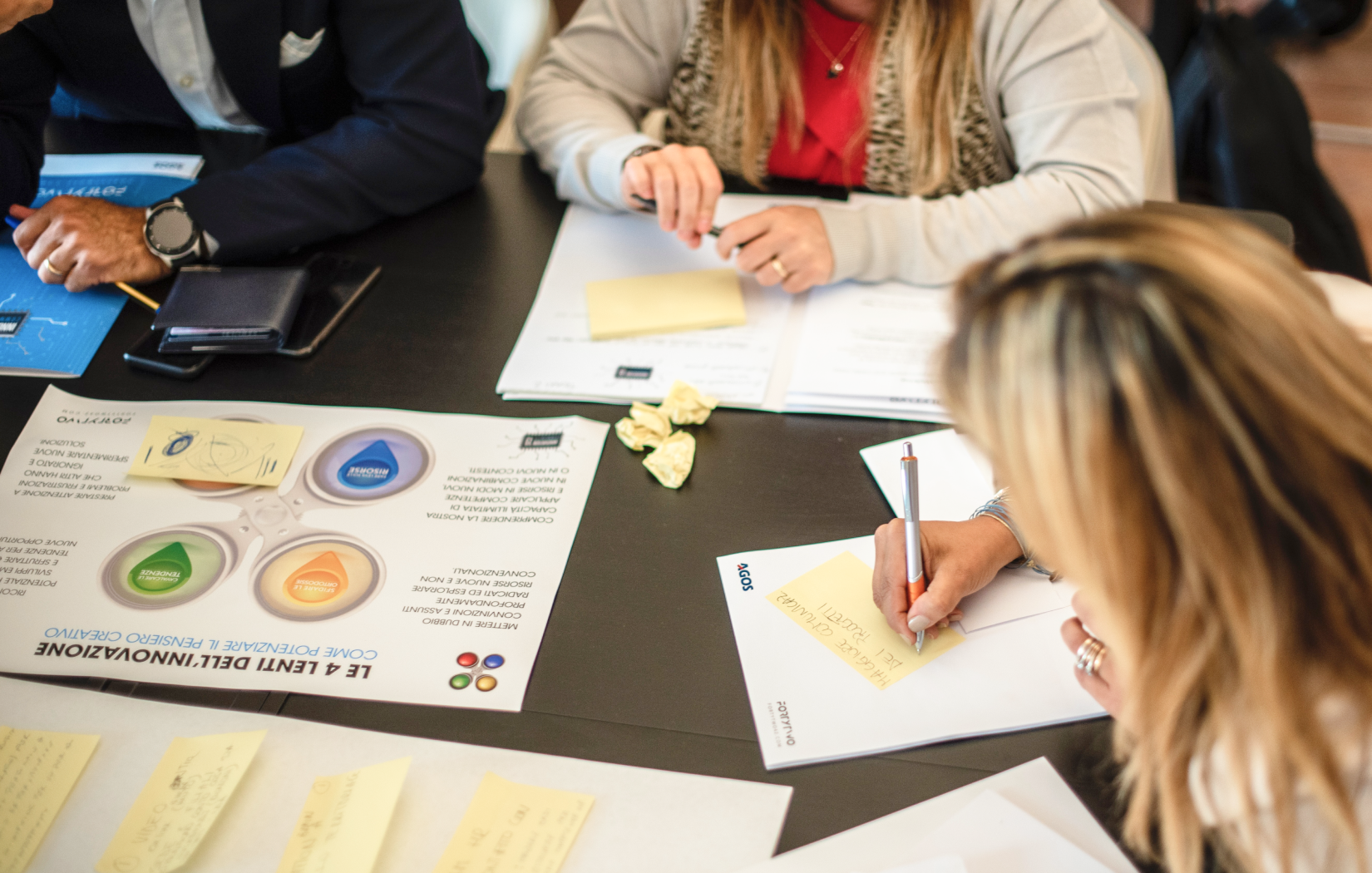Blogs
Design Thinking Cheat Sheets
Durga Prasad
Posted On May 29, 2023
UX principles for Predictive UX
There are many visualizations on design thinking framework floating around. However I couldn’t find one that could help me and my team to refer quickly with clear view of the framework and associated tools. Hence the cheat sheets 🙂
#DesignThinking cheat sheet as seen here can be referred as a conversation starter and used to sensitise clients and newbies. I have kept it as visual as possible and the cheat sheet covers my favourite methods under each phase.
Follows some more cheat sheets for each phase of DT.
Understand & Empathise Like a Designer
One thing that makes us human is our ability to find elegant solutions to tricky challenges through “Empathy”. It is a deep subject with cross references to evolution, education, psychology and business too. However, in Design Thinking paradigm, I tried to capture the multi-dimensional aspects of empathy and present in a way that can be referred and further extrapolated.
Synthesise Like a Designer
While reading people, by feeling for them and acting towards making things better for them, we end up collecting huge amount of information. If mined well, it can provide insights into tricky problems and innovative solutions. That’s where Synthesis comes into being. Synthesis makes sense making and creative interpretation of data fun and structured.
Apart from clustering, persona, journey map, empathy map, point of view etc. I thought newer methods such as Nir Eyal’s Hook and Stratagyzer’s Value Proposition Design can add unique value to the synthesis phase. This is a deep subject and I will cover this in another post in future.
Ideate Like a Designer
My observation on ideation is, one can go for solutions/prototypes at any stage of ideation. Depends on what quality of output one is willing to settle for.
For example, one can provoke a creative guy with a design challenge and still extract something that looks great. I call it “Artistic Solution/Creative Prototype”, which might or might not solve the design challenge in entirety. If you are trying to find final solutions in a brainstorming session, probably you will have to settle for ugly prototypes. The most appropriate solution can only be derived through a thorough idea filtration process.
The idea of the cheat sheet is to enable any of us in visualizing and taking informed decision about what tools to use at what stage of design thinking.

An experienced CEO with a demonstrated history of creating a business in the design industry that delivers sustained growth, industry-leading profits through an unerring focus on customers & employees. With deep expertise in UX research across diverse sectors, he offer invaluable insights on customer-centricity and fostering success in business.



